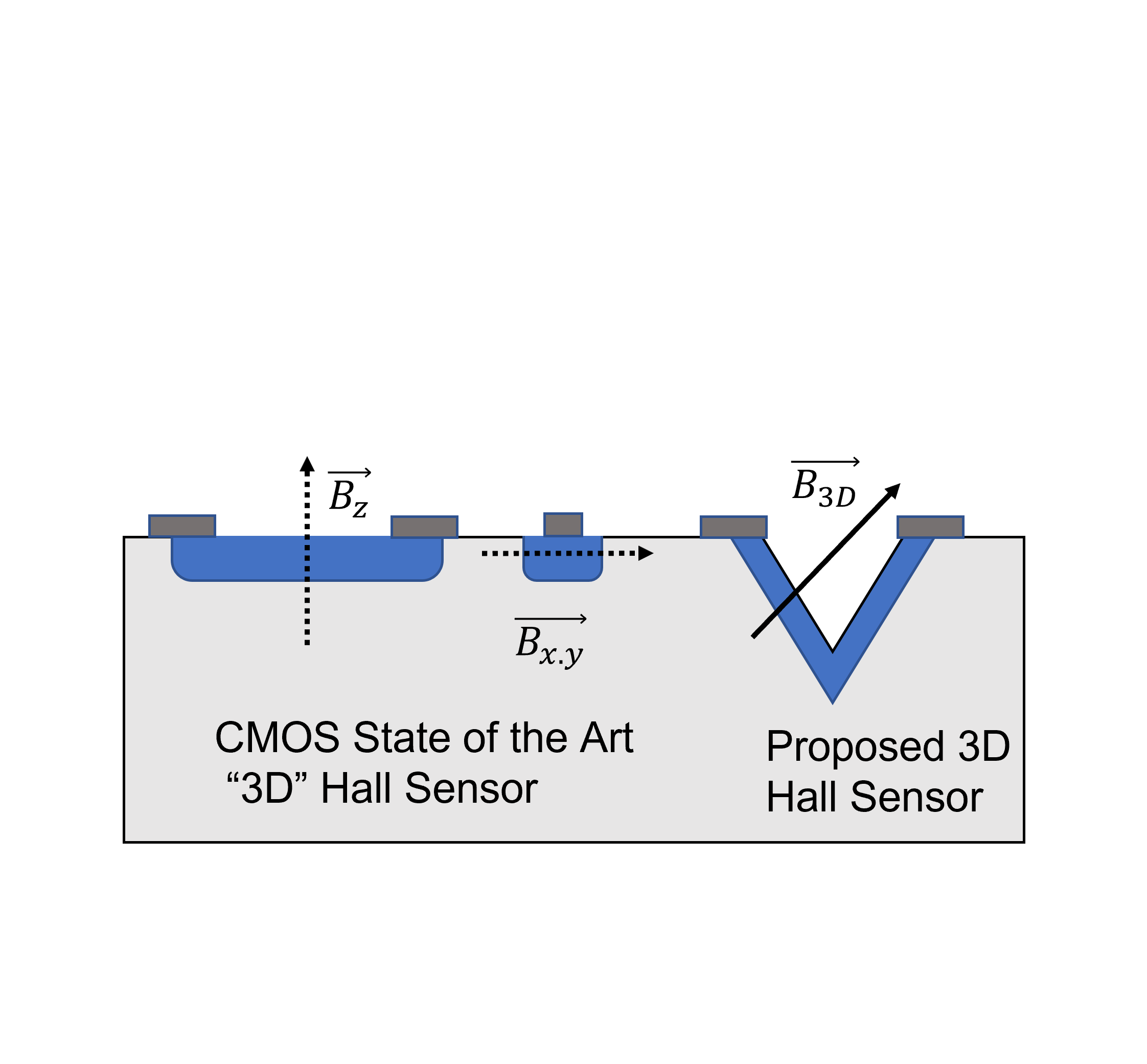Openings at EI
PhD Position in Wide-bandgap Magnetic Sensors merged with Integrated Circuits
Opening for: PhD studentStatus details
| Status: | Closed |
|---|---|
| Announced: | 27 Sep 2022 |
Miniaturized magnetic field sensing is beneficial in several applications including navigation of implantable chips, nanosatellites, and power and motor monitoring systems for cleaner energy production. However, state of the art silicon CMOS devices are limited in 3D sensing capability due to the processing restrictions on vertical hall devices. In addition, silicon Hall-sensors have limited temperature operation ranges which restricts its application in extreme environments. These can be overcome with new materials, fabrication methods and geometries.
We seek you as a PhD candidate to create a novel 3D magnetometer that leverages MEMS processing with novel materials, to create a magnetometer that can sense all three magnetic field directions from a single device. You will investigate novel materials in the active layer to improve performance and temperature operation over silicon devices. You will also design and tape-out the circuit for bias and readout in a modern CMOS process. This is a multidisciplinary project which will involve collaboration both in our group, across the microelectronics department (EI – ECTM), and across faculties (EEMCS-3ME).
You’ll join our highly motivated, supportive and cohesive team of professors, teachers, technicians, PhD students and master’s students in the Electronic Instrumentation (EI). At EI you’ll find a welcoming and open atmosphere. We have a track record of nurturing talent at various academic levels and will give you all the support you need to evolve in your PhD. Our world-class facilities include the fully equipped EKL and Kavli Nanolab cleanrooms, as well as dedicated labs for micro-system assembly, electrical measurements and sensor characterization.
Requirements
We would like you to have experience with both analog IC design and hands-on microfabrication. You also should be a self-motivated researcher with excellent learning, analytical, problem-solving creativity, teamwork and communication skills.
If you feel this role would be a perfect match, but you cannot yet tick all the boxes, we’d still really like to get to know you, as you can learn and grow on the job!
To apply for this position, please email K.M.Dowling@tudelft.nl incudling the following:
- Detailed CV
- Motivation letter
- BSc and MSc* Transcripts
- Names and contact information of at least two references (contacts, letters not needed)
*competitive applications without an MSc might be considered upon extra review
Contact
dr. Karen Dowling
Assistant Professor
Electronic Instrumentation Group
Department of Microelectronics
More information
Additional information
In The Netherlands, almost all PhD positions are linked to funded research projects. This has several implications:- PhD students are employed: they receive a salary rather than a grant. Most projects have a duration of 4 years.
- Positions become available once a project is funded. This can happen at any time during the year.
- It typically takes 6 to 9 months for a project proposal to receive funding. In this period, a position may be anticipated but the outcome remains insecure. Once a project is funded, the open position needs to be filled as soon as possible.
If you are interested in our research, it merits to inquire whether openings will be available. We collect resumes of prospective PhD students throughout the year, for each of our research tracks.
General requirements
We make our selection based on the following general requirements:- Formal requirements regarding prior education: you should have earned an MSc degree at a recognized institute for higher education.
- Background: this depends on the specific project.
- Excellence: your Grade-Point-Average should be above 8 (10). Also your MSc thesis should have received a grade above 8 (10).
- English: you should be able to communicate well in english (written and oral). Provide TOEFL/IELTS scores if available.
- Originality: your MSc thesis or later work (publications) should reflect some original ideas. Critical and independent thinking is very important.
- Team player: you should be able to work well in a team of other project members.
